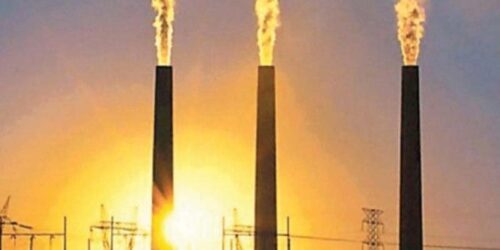The Power Division has again moved a summary to the Economic Coordination Committee (ECC) regarding release of payments to Independent Power Plants (IPPs).
It moved a summary in the wake of a letter received by the National Accountability Bureau (NAB). The government had already signed agreements with IPPs to pay Rs403 billion in instalments. The anti-corruption watchdog is currently investigating into the alleged excess profit.
Earlier, the government had put the release of payments on hold following investigation launched by the NAB. The anti-corruption watchdog was conducting investigation against a power plant set up by a business tycoon. However, it had sought all record relating to the agreements that the government had signed with IPPs.
Previously, the Power Division had moved a summary to the ECC of the cabinet saying that it would be appropriate to wait for conclusion of the probe before going ahead with payments to the IPPs. It was recommended that payments to all the IPPs under the Power Policy 2002, which had signed agreements, may be withheld till the conclusion of NAB investigation.
However, it was proposed that payments to all other IPPs may be given according to the signed agreements. First time, the economic decision making body had deferred a summary from the agenda. The Petroleum Division had proposed to hold the release of payments to IPPs following investigation launched by NAB. However, ECC had not taken up the matter later.
Meanwhile, the agreements with IPPs have expired. However, the Power Division officials say that the government and IPPs had grace period of 70 days to implement the agreements.
In a latest development, officials say that the Power Division had received a letter from NAB which did not bar the payments to IPPs. However, it did not convey a clear message to the Power Division on what the government should do when investigation was under way.
Read: ECC may stop payments to IPPs
The NAB said that it was doing its own work and the government should do its task regarding deal with IPPs. The officials were of the view that it is not clear whether the government should move ahead on a deal or it should hold the entire process now.
The inquiry committee on power has said that the IPPs received excess payment of Rs1,000 billion. Officials say that some points raised by the committee on power were correct but some points had no justification. The Power Division had provided relevant record of the deal with the IPPs to NAB Lahore.
The Power Division had recommended earlier that payments to all the IPPs under the Power Policy 2002, which had signed agreements, may be withheld till the conclusion of NAB’s investigation. However, it was proposed that payments to all other IPPs may be given according to the signed agreements.
Earlier, the Cabinet Committee on Energy (CCOE) and the ECC reviewed a report prepared by an implementation committee mandated to convert memoranda of understanding (MoUs) into binding agreements and approved the payment mechanism and agreements with the IPPs in meetings held on February 8, 2021.
These decisions were ratified by the cabinet on February 9. Agreements were signed with the IPPs following the cabinet’s approval. As per the payment mechanism, the first instalment is to be paid to the IPPs within 30 days of the signing of agreements. The excess profit for the IPPs had been highlighted in a report of the Committee for Power Sector Audit, Circular Debt Resolution and Future Roadmap.
The MoUs contained a clause which said that in order to assess if the IPPs had made any excess profits, the reconciled numbers would be submitted to the National Electric Power Regulatory Authority (Nepra).
As a legal body, Nepra will hear and decide the matter in accordance with the Power Policy 2002. NAB has said that it is conducting investigation into allegations of corruption and corrupt practices against owners/management of a power company, officers/officials of Nepra, officers/officials of the Central Power Purchasing Agency (CPPA) and others. It has asked for provision of relevant record and present status of the MoUs. Now, the ECC will decide the fate of deal following the recent letter from NAB.





